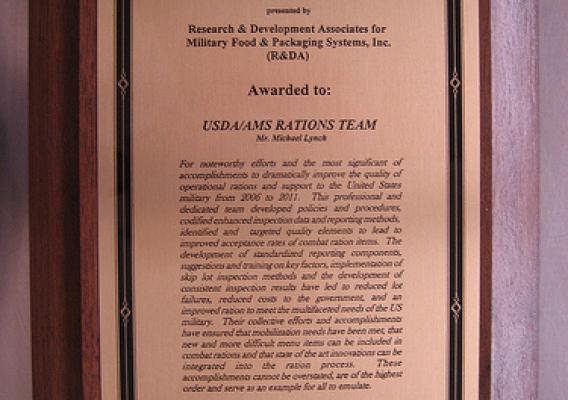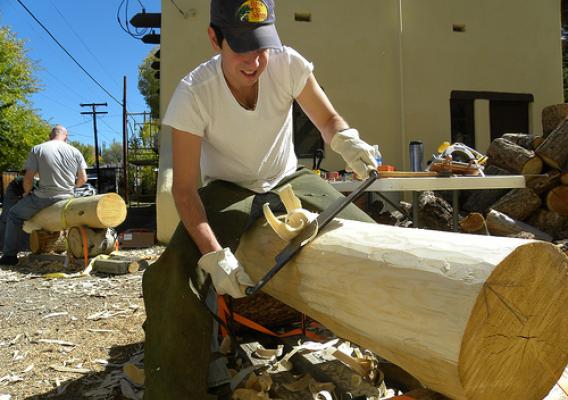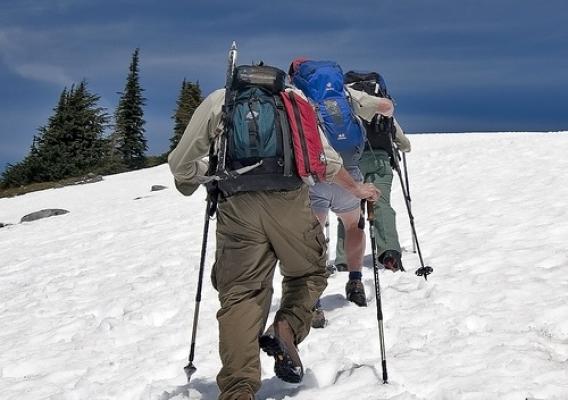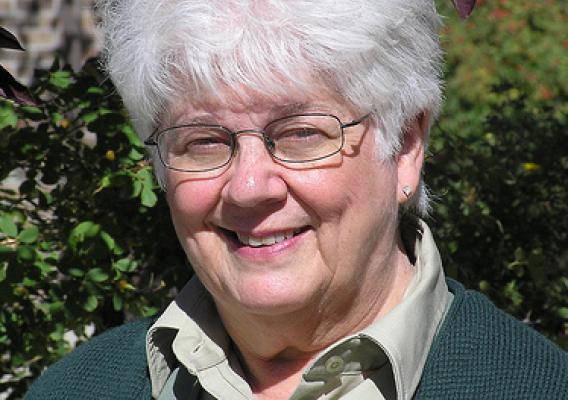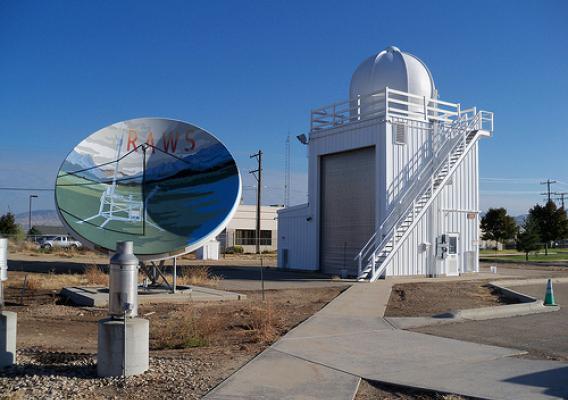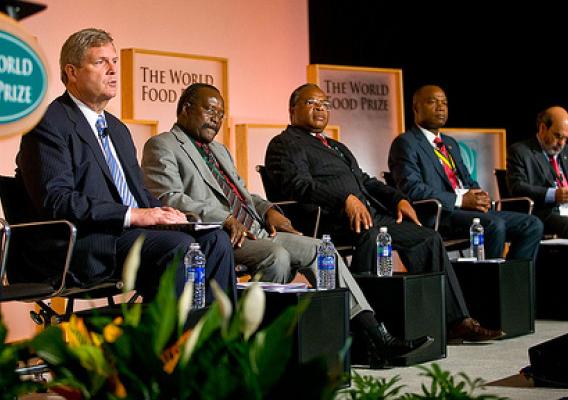Recently I was in Des Moines, Iowa, to participate in events leading up to World Food Day. This day is observed each October 16th in recognition of the founding of the UN Food and Agriculture Organization (FAO) in 1945. The first World Food Day was held in 1981. Its purpose is to increase worldwide awareness and year-round action to alleviate hunger.
On October 10, I had the honor of speaking to a large group of people at Iowa State University about the importance of the world producing enough food to feed its growing population. This is not just a moral issue, or an economic issue, or an agricultural issue. It is an issue of national security.
When you consider the challenges we face today—925 million people around the world were undernourished last year—and those we foresee in 30 to 40 years—a world population growing by one-third to more than 9 billion that will require a 70-percent increase in food production—you understand why the United States and the international community must tackle this serious, long-term threat.

